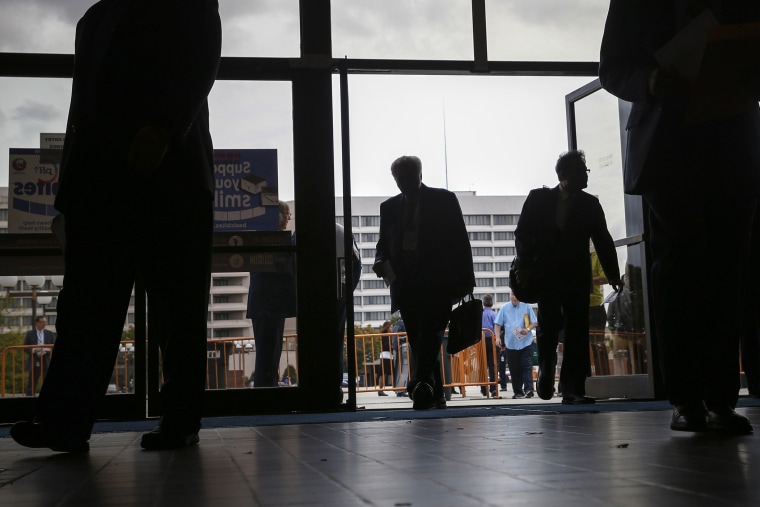On paper, things seem to be looking up for the U.S. economy. The private sector has recovered the number of private-sector jobs that were lost after the financial crisis. Unemployment fell to 5.9% last month, down from 7.9% at the same time in 2012. Economists point to the U.S. as one of the few bright spots in a global environment of disappointing economic growth.
But those gains haven’t been enough to lift the mood of the country — or Democrats’ prospects on Tuesday night.
The voters in this year’s midterms, like Americans at large, feel strongly that the country is headed in the wrong direction and that the economy is getting worse, not better. According to exit polls, nearly 60% of voters said that the economy is either poor and staying the same (27%) or getting worse (31%). By comparison, only 34% of midterm voters believe that the economy is getting better. And the economy remains the most important issue to voters overall — more important than health care, immigration, or foreign policy.
Why is there such a disconnect? One big reason is that economic gains haven’t translated into wage growth for ordinary Americans. Though jobs have been steadily come back, wage growth has been stagnant: Between 2009 and 2013, real average wages in the U.S., adjusted for inflation, have barely budged.
RELATED: Red states consider minimum wage hike
It’s not just because of the economic downturn, but also because of long-term economic factors that have been dragging down wages for decades: The loss of middle-class jobs due to technological advances and globalization; the decline of labor unions and worker bargaining power; and a country that’s still struggling to adapt to a post-manufacturing America.
In the lead-up to the financial crisis, the housing bubble masked some of this underlying economic reality. Easy consumer credit and inflated housing prices gave ordinary Americans a feeling that they were more wealthy than they actually were, and that the economy was doing better than it actually was. The new economic normal is better than it was during the worst of the recession, but it might not feel as good to many households as it did inside a bubble.
And while we’ve managed to climb out of the recession — which officially ended in June 2009 — it’s been a long, grinding process that’s made it difficult to feel like the economy’s truly been gaining steam. It took nearly six years for the economy to gain back all the jobs it lost in the worst downturn since the Great Recession. And despite health profits, businesses says they’re still feeling uncertain about the future and have held off from investing that cash.
RELATED: 2014: Historic gains for women in politics
It helps explain why midterm voters like Gerald Alvarez, a jeweler in Marietta, Georgia, doesn’t feel like the economy is getting any better. “I don’t care what anyone says; it’s still in a recession,” he told msnbc. Alvarez voted Republican.
